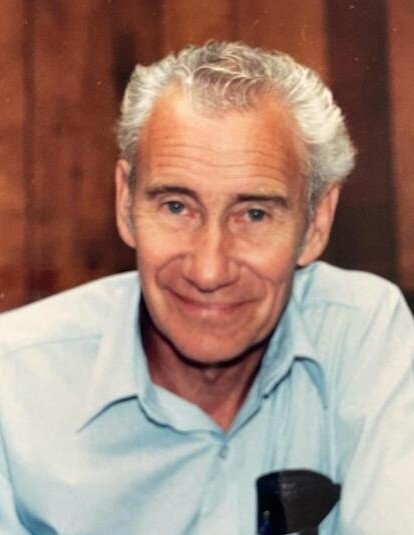Do you ever feel stuck? As an aviation and traveling aficionado, I can easily relate this feeling to itinerary disruptions. Kind of like you unwillingly find yourself in a holding pattern after a long flight, being exhausted and just ready to be home in bed. Or stuck on the tarmac because of inclement weather or a gate not ready for your arrival. Or upon landing, you receive a notification that your connecting flight was canceled. If you’ve ever experienced it, it’s not a fun feeling. Especially when circumstances are out of your control and you’re at the mercy of air traffic control, weather, airline policies, etc. The anxiety can be palpable.
While I am not currently traveling but sitting in the comfort of my living room with coffee, I have felt stuck for a while. We (Rach and I) feel stuck. This summer we were presented with a vocational ministry opportunity that would have required relocation meaning another major transition. We could have pulled it off, there is no question about it. Essentially, the options on the table were moving away or staying put. As we navigated this decision making process, we sought out several trustworthy people and invited them into this conversation. One of whom raised an interesting point, “Relocating would be easy. It’s a new adventure. Staying would be more difficult as it requires patience as you continue to become rooted.” It’s not that we were opting for the path of more resistance, but in a sense it’s the one we ended up choosing in our decision to stay.
For a while, we have felt the tension between following Jesus and what we ultimately feel called to regarding “vocational ministry,” and doing what is necessary to make ends meet. Not that the two are necessarily mutually exclusive, but that’s kind of where we are currently. And maybe that’s the wrong way of thinking about our present circumstances. Our days consist of job searches, applications, an interview here and there. Our Sundays consist of worshiping at a Lutheran church and becoming accustomed to the rhythms of a worship service in that tradition. The week consists of drop-offs and pick-ups; meal planning and grocery runs; spending what sometimes feels like hours to prepare a meal that is devoured in 10 minutes, (or complained about) and then cleaning up; bed-time routines, laundry and rousing the kids for school again. And then of course the occasional medical issue which requires a visit to the doctor’s office, or even the hospital in some cases.
So, waiting for that right door to open. The calling to become clarified. Something to fall into place to meet immediate needs. Seeking to faithfully follow Christ. Navigating the rhythms of life and the interruptions. What is the Lord teaching us in this process? How to actively wait which I know can be frustrating. Time in God’s economy is very different from our own. More often than not, his work occurs at a much slower pace than we are accustomed to. But the waiting that we are called to is not passive. Continue to cultivate the relationships in your community, whether that be your church, CrossFit community, or an enneagram group and book club. Cultivate the rhythms and relationships of your family, whether that be your biological family, or the family that you have been welcomed into. Cultivate your hobbies whether that be gardening, woodworking, painting or cooking. Read and write, think and share. Make music or art. Use your gifts and skills to invest in the people and places where you presently find yourself.
What are you waiting for? That phone call or email. An invitation to something. An invitation to somewhere. To find a community where you feel safe and known. To feel like you’re not in the grind for at least a day, a week, a month. Maybe you’re waiting for rest. Or for resolution to a conflict. Or for wars to cease. We all long for something, whether that is being known or even on a grander scale, the realization of the New Jerusalem. As we wait and long for resolution or fulfillment or the clouds to lift, may we wait well. May we be well as we wait. May we look to the things around us that need to be done, no matter how repetitive or mundane. It’s challenging when you’re waiting to focus on the things in your peripheral vision. Let’s be honest, it’s sometimes easier to ignore them. But while you are waiting and following and trusting Christ in the process, may you be at peace in the present and be able to bring things into focus which lift your countenance and instill hope as you look to the future. Actively waiting, It’s not easy. It’s definitely not comfortable at times. But I’m convinced that really good things can emerge in those seasons and processes if we learn how to work and rest and have the eyes to see and the ears to hear where Christ is leading in the season of life we find ourselves.








































